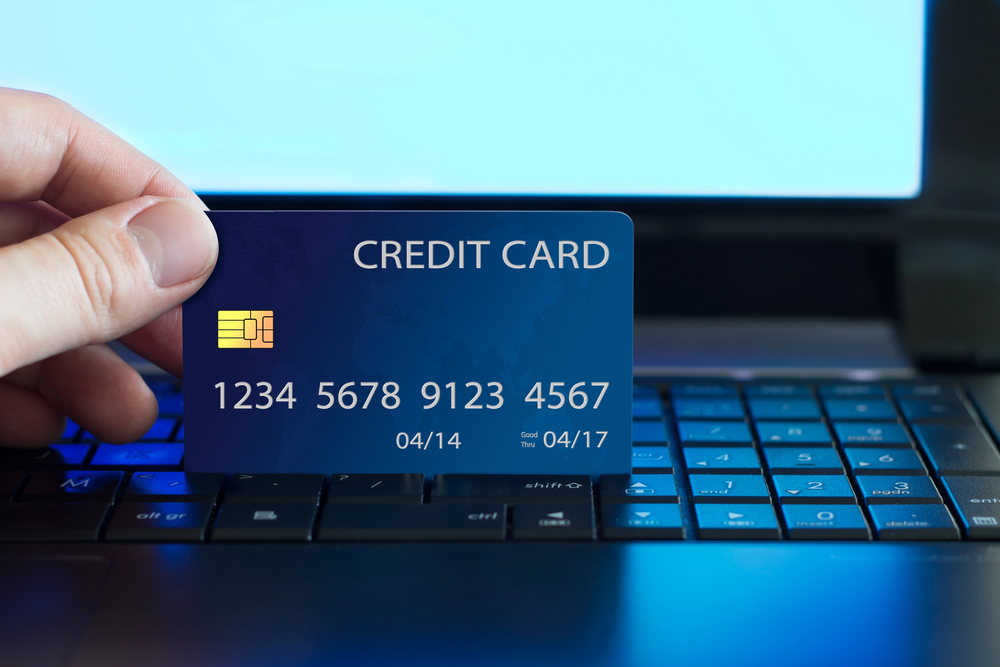
Free Merchant Accounts 101. You Guessed It. It’s Not Free!
Mar 4, 2020 6-MINUTE READ
Free merchant accounts sound like a good deal, don’t they? Imagine the thought of receiving merchant account settlements but paying out nothing in return to your provider.
As an online business owner just starting out and looking for your first merchant account, free is very appealing. You’re looking to reduce costs while you increase access to your customers and vice versa. And perhaps you just want to test the waters and free makes it easier to do that. Or, you realize that your business is classified as high risk. That means you can expect to pay higher fees and rates compared to low-risk merchants. Even fees related to chargeback and fraud ratios are higher. Therefore, you need to identify ways to limit costs as much as possible.
In circumstances like these, a free merchant account will seem like the best way to go right now.
But you know that nothing in life is really free. And if you aren’t paying for it now, it’s likely you will pay for it later in some way or form. That free account could cause your business more harm than good. So, do you know the hidden pitfalls of signing up for a free merchant account?
The 101 on free merchant accounts
Before you go to Google searching for free merchant accounts, here are a few things you need to know and consider.
First of all, what is free payment processing? This is one of the first questions you need to ask yourself. You need to check how they define “free merchant account” before you sign on the dotted line.
Is it a case of no monthly fees? Or maybe they are offering no transaction fees? Is it free (no fees) for a specific period of time or number of transactions per month?
Some of the things they may offer as free to you include:
- No application fees
- No account set-up fee
- No monthly account maintenance fees
- No transaction-specific fees
There are so many ways to package a free merchant account. But, not all that glitters will build your business income. And within no-fee policies often are greater issues which we will get into in a bit. But before we do, we want to make it clear that no matter what, you need to read the fine print. Read the entirety of the merchant processing contract before signing. You want to make a decision in the best interest of your business.
Contact DirectPayNet today. As your payment advocate, we will guide you through the process of reviewing and applying for a merchant account that suits your business and goals. Clear and transparent pricing that we can walk you through so you understand your monthly fees.
Some of the issues with free merchant accounts
Understanding the issues with a free merchant account starts with knowing the right questions to ask.
1. What is the length of the contract you’re tied to?
This is an area you need to assess when you’re looking at getting a free merchant account. Some merchants have a small 3-year contract with automatic renewal. Also, an early termination fee could be included. Do you have issues with your current payment processor? Your contract may force you to remain with them unless you’re willing to pay their cancellation fee.
2. Do you know the rate(s) when you start to pay fees?
Is the “free” that you’re offered time-sensitive? Will you start paying fees after a few months and will those fees be worth having the free offer in the early months? If you aren’t sure, then you need to compare those rates and what other merchant processors are willing to offer you without free attached to it. A few months with no fees, may amount to hefty monthly transaction fees later on. Many free merchant account providers add surcharges to recover the promotional period they offered you free services.
3. Are you doing business in keeping with your state or country requirements?
Did you know that there are regulations that limit the types of business or transactions that can incorporate free payment processing? Or where you can pass on the fees to customers? The credit card associations (i.e. Visa and Mastercard) also have acceptable practices that you must adopt as a merchant account holder. If you fail to meet these standards, you could lose your merchant account or even worse get placed on the MATCH-list or added to the Terminated Merchant File (TMF).
4. How will you appear to customers?
When someone sees your products and services and decides to buy, are you showing them the final price? Take for example you’re offering a service. You price it at USD $135. But your merchant fees can get up to 5%. So, you pass on the cost to the customer for a total of $141.75.
If your “free payment processor” is passing on the costs to your customers, are your customers aware of this before they get to checkout? If there is no option to pay by cash, in many states, you cannot surcharge a customer for paying by credit card.
Otherwise, you will either see:
- High abandoned cart processing as customers who see one price on your site and another on the payment page will abandon the purchase.
- High chargebacks because the final price on their credit or debit card bill is not what they expected.
Are you aware of unavoidable fees?
There will always be credit card processing transaction dues. Card associations collect fees on each transaction charged. So does your payment service provider. In fact, the latter must collect to keep up technology and provide merchant services. As such, either the merchant must cover the costs or, if the law allows, the merchant can pass the fees on to the consumer. Some of the unavoidable fees of having a merchant account include:
- Assessment fees: These are card brand fees payable directly to the card associations themselves. You may see them referred to as NABU fees (Network Access and Brand Usage fees). They are standard across processors, non-negotiable, and your payment provider has no control over them.
- Interchange fees: These are rates (interchange) set and charged by the credit card associations and payable to the issuing bank. (Check out Visa and Mastercard descriptions of and their interchange rates.) This is the percentage charged for each transaction by the card associations (Visa, MasterCard, Discover, etc.)
- Processing/Transaction fees: These are the most variable costs. They are set by your payment processor. You can be charged a percentage of the transaction, a flat fee (which includes interchange), or both.
As a newbie to payment processing, you would have realized that setting up a merchant account comes at a cost and time. For example, the acquiring bank invests time performing due diligence on applicants when opening a new account. That means running risk analyses on the financial and legal implications of working with your high-risk business model. This may include running a credit history and score of you and any other director(s) of the company.
So, if you aren’t paying these fees, who is paying them?
These services that offer zero-fee merchant processing must make money. After all, they are a business too. So, where do they get their income from? If you think about it, the only way they can offer you free is to either: pass on the costs to your customers; or bill you in some other form. Now, consider how many customers you’re losing because you are passing on your card processing fees to them? Or how much money you’re paying in hidden fees?
What’s the catch? And are you willing to pay it?
Yes, there is always a catch to something free. As the saying goes, if it seems too good to be true then it probably is. So, here are some other issues you could face with a free merchant account.
- Higher fees per transactions: The free merchant accounts may charge you a fee per transaction with your customers. This fee could very well cost you more in the long run than simply choosing a better account that isn’t “free”.
- Penalties by credit card companies: Where you’re contracted to a free payment processor, the credit card processors may charge you a higher percentage point on your transactions.
- Loss of business: Customers may cease doing business with you because they don’t want to pay your fees for you.
- Limited Cash Flow: Perhaps your free account will cause you cash flow issues. That’s because you may be required to maintain a higher rolling reserve or security balance than other high-risk merchant accounts. The cheaper the fees, the more restrictions and conditions you’ll need to meet.
So, are you willing to take these risks all because you want a free-on-the-front-end merchant account?
Final Thoughts
There is a cost to do business. If you aren’t willing to factor in the costs, then you’ll have a hard time staying in business. Running after these so-called free merchant accounts aren’t going to help your business grow. Instead, you need to focus on quality. You should identify merchant service providers that can deliver the type of services that complement your business. If you are a high-risk merchant, a free merchant account will be more problematic. Your payment provider needs to make revenue to cover any liability and risk arising from your merchant account.
Payment processing is about the experience as well as the final cost. The less friction between your customers and the final buy button, the better. Make your online checkout experience a seamless one – without hidden costs to prospective buyers.
Let’s talk if you want to ensure that you start off your merchant processing on the right foot. DirectPayNet has helped numerous new merchants just like you secure the right merchant accounts to support their business.
We can assist in preventing unnecessary fees and terms that strangle your cashflow. Plus, we help you streamline and improve payment processes for both you and your customers.





5 thoughts on “Free Merchant Accounts 101. You Guessed It. It’s Not Free!”